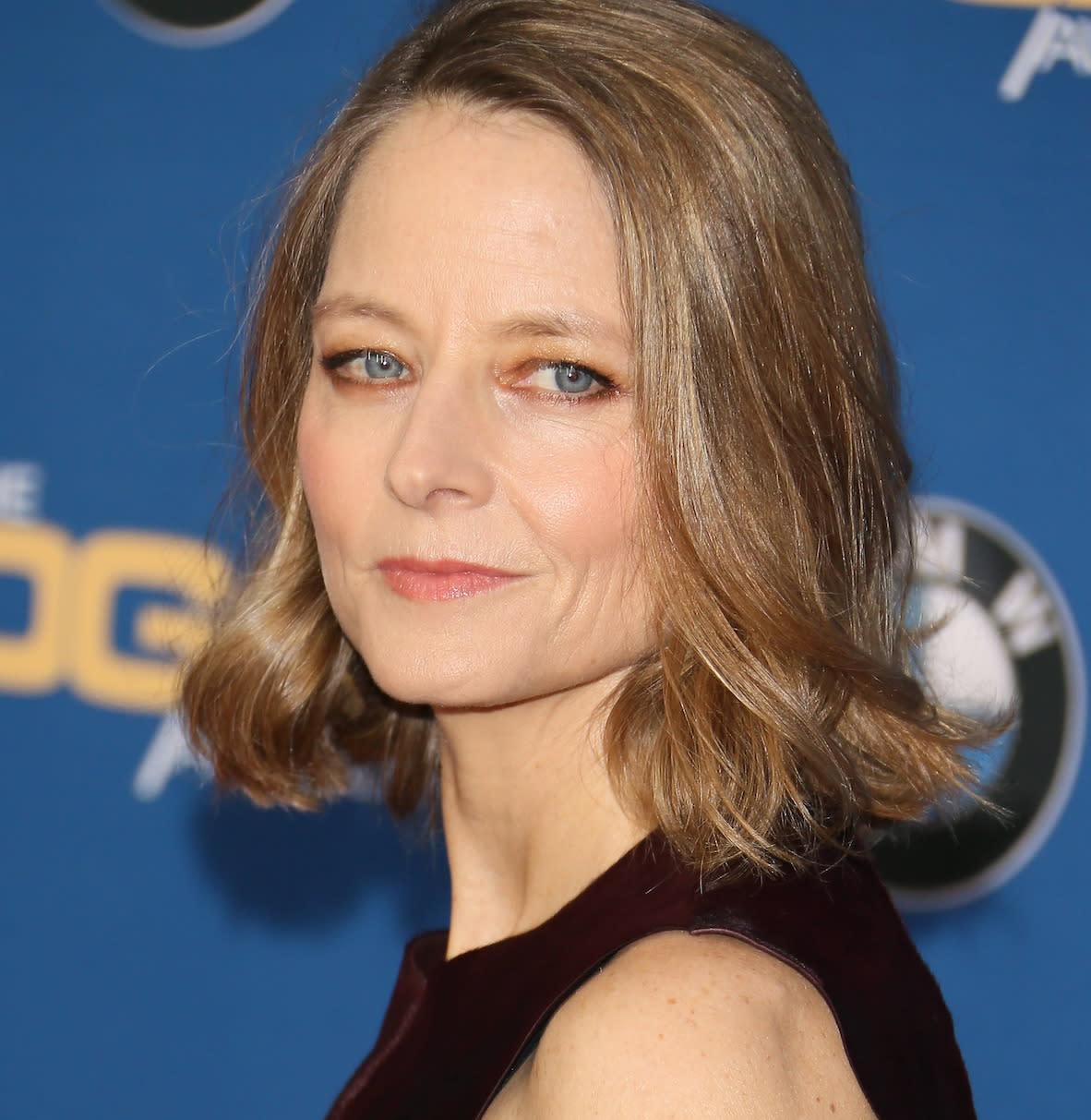Jodie Foster: Change for Women Directors in Hollywood 'Not Quick Enough'

Another week, another round of news about the sorry state of female filmmakers in Hollywood. The latest damning study has been released as the industry awaits findings from the Equal Employment Opportunity Commission’s ongoing investigation into the discrimination of women directors. While Twilight director Catherine Hardwicke, among others, has given lengthy testimony to the feds, there’s one prominent women director who has not been contacted: Jodie Foster.
Although director and Oscar-winning actress exclusively tells Yahoo Movies that she has not been asked to speak with the EEOC, she has plenty to say about Hollywood’s culture of big-studio boys clubs.
“I’ve seen many faces in filmmaking,” says the 53-year-old, pointing out that she’s been in the business for nearly 50 years dating back to her time as child actress in commercials, television, and film. “I made movies when there were no women. The only women were, occasionally, a makeup artist, but not always; a script supervisor, usually; and the person playing my mom. And that was about it.”
More women have started working in film — and in various roles — but it’s happened very incrementally, according to Foster. “Little by little, movie sets have changed. Women have started coming into the process and really I think it’s changed it for the best.”
But when it comes to women directing big-budget studio films, Foster recognizes the industry hasn’t really budged. “There are so few female directors. That’s not true in the indie world, and it’s not true in Europe. It really is only America and it’s mainstream movies,” she says. “I don’t believe it’s a conspiracy. I don’t think it’s a plot to keep women down.
"The question to ask is: Why is it that the mainstream community believes that women directors are a giant risk? I don’t know why that is. Why are they [considered] more of a risk than a male director? Every time you hire a director you’re taking an enormous risk because they’re responsible for everything. You’ve just handed over the keys to the kingdom to somebody who you don’t know. Natural and true to the human animal, if we’re going to hand over the keys to the kingdom and give somebody a tremendous amount of power, we want them to look like us. That certainly has been true of executives… Little by little that’s changing, but certainly not quick enough.”
Despite growing up in a business dominated by the opposite sex, Foster says she had a positive experience. “They taught me the ethics, how to pull focus,” she explains. “They taught me about the camera and how to write thank-you notes, how to mean what you say. I had brothers and fathers who brought me up in the system.” But, she adds, she’s glad the locker-room atmosphere on movie sets is becoming a relic of the past. “I remember being in the '70s and being with a crew of guys in Tuscon, Arizona — or wherever you were — and they were just crazy. It wasn’t real life. They were away from their wives and from home. They were just a bunch of guys at summer camp or in the trenches or something — so that’s changed.”

Foster, right, with George Clooney on the set of ‘Money Monster’
Foster has finished directing her fourth feature film, the upcoming finance thriller Money Monster, starring Julia Roberts and George Clooney. She has also been directing for the small screen, helming episodes of Orange Is the New Black and House of Cards. Foster enjoys going back and forth between the two mediums. “Features are hard. You basically bleed every ounce of blood you have. It’s extraordinary when you look at a movie like The Revenant. You’re just like, 'Wow, how is that possible to wake up every single day of your life for two-and-a-half years, three years and live in that movie and have to think of every single detail — every single hair on that bear, every single piece of blood?’ The nice thing about going back and doing television is it’s a lot more story-oriented and character-oriented and it happens a lot faster.”
But Foster says the reason she hasn’t directed more features isn’t due to Hollywood inequities, but rather motherhood. “That was the big lapse because I had kids in there — certainly from my second film [1995’s Home for the Holidays] to my third film [2011’s The Beaver] I had kids,” she said, adding that she plans to direct much more from here on out.
(Photos: Jason LaVeris/FilmMagic, Sony Pictures Entertainment/TriStar Pictures)

 Yahoo Movies
Yahoo Movies 
